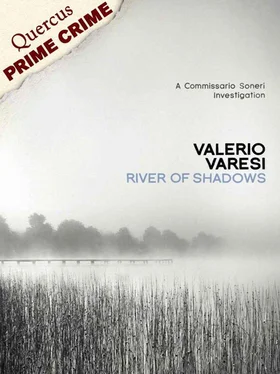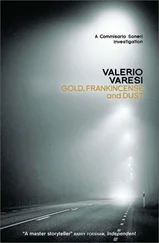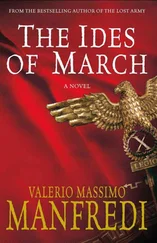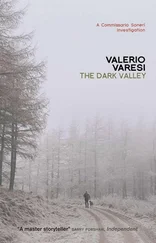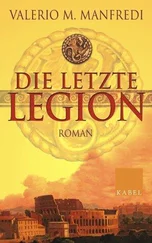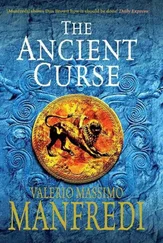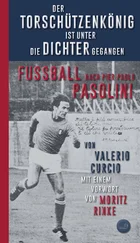Valerio Varesi - River of Shadows
Здесь есть возможность читать онлайн «Valerio Varesi - River of Shadows» весь текст электронной книги совершенно бесплатно (целиком полную версию без сокращений). В некоторых случаях можно слушать аудио, скачать через торрент в формате fb2 и присутствует краткое содержание. Жанр: Полицейский детектив, на английском языке. Описание произведения, (предисловие) а так же отзывы посетителей доступны на портале библиотеки ЛибКат.
- Название:River of Shadows
- Автор:
- Жанр:
- Год:неизвестен
- ISBN:нет данных
- Рейтинг книги:5 / 5. Голосов: 1
-
Избранное:Добавить в избранное
- Отзывы:
-
Ваша оценка:
- 100
- 1
- 2
- 3
- 4
- 5
River of Shadows: краткое содержание, описание и аннотация
Предлагаем к чтению аннотацию, описание, краткое содержание или предисловие (зависит от того, что написал сам автор книги «River of Shadows»). Если вы не нашли необходимую информацию о книге — напишите в комментариях, мы постараемся отыскать её.
River of Shadows — читать онлайн бесплатно полную книгу (весь текст) целиком
Ниже представлен текст книги, разбитый по страницам. Система сохранения места последней прочитанной страницы, позволяет с удобством читать онлайн бесплатно книгу «River of Shadows», без необходимости каждый раз заново искать на чём Вы остановились. Поставьте закладку, и сможете в любой момент перейти на страницу, на которой закончили чтение.
Интервал:
Закладка:
He had a mental image of the map showing the course of the river and the towns along its banks. Stagno faced Torricella del Pizzo, and further down the valley Torricella Parmense was more or less opposite Gussola, while Sacca looked out slightly to the east of Casalmaggiore. Between Gussola and Casalmaggiore stood San Quirico — where there were no moorings — but the magano could have drawn into the bank at almost any point along the river. What proof did he have that things had actually gone that way? He reflected for a few moments, smoking the remains of a cigar he had found chewed and abandoned in a pocket of his duffel coat, and concluded that the only reason for thinking that something had occurred at San Quirico was the direction from which the magano had arrived the previous evening before it was winched ashore. If the last leg was Stagno, the boat would have taken advantage of the current from the west. In fact, it had come in the opposite direction, against the current. He had clearly heard the engine step up a gear turning into the stream and cutting diagonally across the river. It was evidently necessary to add one more stop to the records kept on board.
He switched off his mobile and walked down to the moorings. Without giving a greeting or speaking a word, he stood watching the two men working around the boat which was now resting on a wooden frame holding it about a foot above ground level. Both parties, the commissario and the two boatmen, kept their peace, the latter continuing to work, stepping in front of him without so much as turning in his direction. It seemed as though they were engaged in a competition to see whose nerves would fray first. Soneri calmly smoked, challenging even the freeze which seemed to be crawling along the river. The others kept themselves warm by working on the hull, pulling away lumps of ice.
“Made it just in time?” the commissario finally said.
The pair turned slowly, as though they had just registered a familiar voice behind them.
“It can’t be any fun having to stay out on the open river when the banks are frozen.”
Vaeven shrugged, conveying that the very idea was senseless. Melegari, however, said: “We’re not that stupid.”
“And yet, when you travel about a lot…maybe you don’t always realize that in a few hours…you yourselves, for instance, when you got back, a layer of ice a finger thick was already covering the two metres just out from the jetty.”
The two men stared at each other.
“It’s worse here than elsewhere. There’s more air,” Melegari said.
“Certainly,” Soneri said, “and when you’re away for days on end, it’s difficult to keep abreast of what is going on. The Po is a long river.”
Dinon stopped his scraping and drew himself up to his full height to appear even more imposing. He managed, in spite of the obvious provocations, to appear unruffled, as did the commissario, who seemed only to be relishing his cigar as if what happened on the river was no concern of his.
“I’ve already told you we don’t appreciate this line of questioning from policemen,” Melegari replied. “It’s not going to get to us. Tell us what it is you want to know and let’s get it over with.”
Soneri looked him up and down, openly defying him and then, after pausing a few more seconds to let the other man see how unaffected he was by Melegari’s aggression, he said: “Where is he?”
“Who?”
“You know perfectly well. Stop playing the fool.”
The commissario’s tone was so peremptory that Melegari was momentarily caught off balance.
“We wouldn’t like you to entertain any half-baked ideas about us,” he said finally, lowering the tone of his voice in a way that was vaguely menacing. “You know that we’re activists, don’t you? Well then, you must also be aware that comrades come from all over Italy to visit, to get an understanding of our situation and to talk politics. Is there anything illegal in us giving them hospitality and taking them out for a cruise on the Po?”
“There could be if all this takes place in a town where an old Fascist officer, who was also passionate about the river and about navigating it, happens to have been murdered. But that’s not certain,” Soneri said, leaving his words hanging in the air.
“You people in the police,” Dinon came back at him with contempt in his voice. “You always suspect us. The moment there’s any mention of Reds, you have a rush of blood to the head.”
The commissario waved them both away, but then, after a longer pause, said: “One way or the other, I’m of the opinion that politics are involved with this business. From a time when politics could still cause a rush of blood to the head.”
He turned away without saying good-bye, and walked towards the boat club. Halfway along the path, he rummaged in his pockets to find a light. But instead of the matches, he came out with a dirty box, the container for the hypertension pills he had found in the drawer. He had had no idea what to do with such a slender clue, but inside the box there was a receipt issued twenty days previously by a chemist in Casalmaggiore.
A mere shadow of a clue, but it was the best he had.
The chemist was an elderly man, with a large handlebar moustache and two tufts of hair above his ears. The shop was narrow and well laid out, with coloured boxes set out on the shelves in such a way as to look like a mosaic.
The man examined the box, turning it over several times before peering at the receipt. “It’s a very common product,” he said, as his daughter, a woman in her thirties, came over to have a look.
“I would imagine you know your usual clients. The ones with high blood pressure, I mean. Apart from them, is there anyone that stands out? A tubby, elderly man with a shuffling walk, a man who drags his feet?” the commissario said, trying to be helpful.
“It could be the man who came in without a prescription,” the daughter remembered.
The chemist concentrated for a moment, then realization dawned. Soneri knew that chemists have good memories; with all those drugs with difficult names to keep them in training.
“An oldish man, yes,” he said, half shutting his eyes as though to focus. “With a way of dragging his feet. He was after some product which is no longer on sale, and he didn’t have a prescription.”
“And you gave him this?” Soneri said, holding up the empty box.
The chemist shook his head. “We cannot sell drugs like that without a doctor’s prescription.”
“So what did you do?”
“He went off and came back that same afternoon with a prescription from Professor Gandolfi, who used to be a surgeon. He lives round the back,” he said, indicating with his thumb some area beyond his shoulder. “He took four boxes so as not to run out.”
“Was there anyone with him?”
“No, he was on his own.”
“Did he have a foreign accent?”
“Anything but! He spoke in a thick dialect.”
Soneri made for the door, but when he had his hand on the handle, another question occurred to him.
“Do you know Professor Gandolfi?”
“Everybody in Casalmaggiore knows the professor.”
“What are his politics?”
Father and daughter exchanged glances, wondering at the point of the question, before the daughter, with an abruptness which might have been taken for scorn, said: “At the university, he was known as the Red Baron.”
Her father gave her a reproachful look in which Soneri read the reluctance of the trader to voice a judgment.
Professor Gandolfi lived in a most elegant villa, which appeared to have been only recently restored. It had a definite air of local nobility. He no longer practised in a hospital, and since his retirement had limited himself to making private visits to elderly, needy patients and to some impoverished comrades sent to him by the Party.
Читать дальшеИнтервал:
Закладка:
Похожие книги на «River of Shadows»
Представляем Вашему вниманию похожие книги на «River of Shadows» списком для выбора. Мы отобрали схожую по названию и смыслу литературу в надежде предоставить читателям больше вариантов отыскать новые, интересные, ещё непрочитанные произведения.
Обсуждение, отзывы о книге «River of Shadows» и просто собственные мнения читателей. Оставьте ваши комментарии, напишите, что Вы думаете о произведении, его смысле или главных героях. Укажите что конкретно понравилось, а что нет, и почему Вы так считаете.
